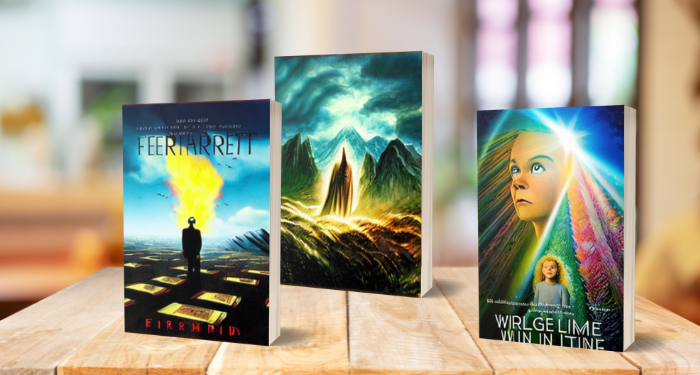I’ve been making a few of these cover quizzes lately, from guessing the book by its first edition cover to pixelated sci fi books to Lego-style fantasy novel covers and even covers by their color palette. They’re a lot of fun, so I’ve been keeping an eye out for other variations on this theme that I can play with.
So, when I saw that Canva had an experimental new AI-generated art feature (called “Text to Image”), I decided to see what it did with book covers. The first couple were very promising, as you’ll see, and then in several others…it took a turn.
The advent of easily available AI-generated art has come with a huge amount of discourse and criticism. AI doesn’t create images in a vacuum: it is trained using real people’s art, often copyrighted, without their permission. Many artists are worried that they will lose work to this automation. Others argue it’s just a new tool, like photography once was.
This post isn’t meant to be a defense of AI-generated art, just an experiment to see how a basic use of this would interpret book covers. For each, I used Canva’s Text to Image tool with the title (and author, if needed) and “book cover,” then picked the painting option. I chose my favorite of the four images it generated.
Your job is to try to guess which book was the prompt that generated each of these images. You can check your work with the links below each one. Warning: some of these images are…unsettling. Also, it’s interested to note that it wouldn’t let me use To Kill a Mockingbird, because it included the word “kill.” Now, onto the covers!

How did you do? I especially found it interesting to see how it interpreted text. “Wirlge Lime Wiin in Itine,” indeed.
You might also enjoy:

